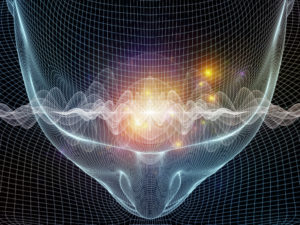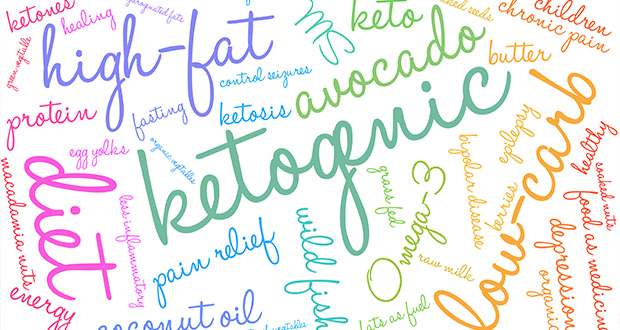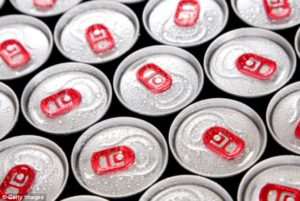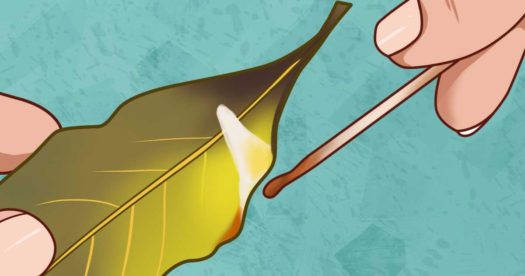
February is National Heart Month. When President Lyndon B. Johnson announced the first Heart Month in 1963, lifestyle-related disease rates were beginning to rise dramatically nationwide. In fact, in that same year roughly half of the deaths recorded were attributed to cardiovascular disease. Unfortunately, today the state of our hearts is not much better. Heart disease is the number one cause of death worldwide, with more than 17.3 million individuals succumbing to inflammatory heart disease, ischemic heart disease, atherosclerosis, hypertension, stroke and other conditions of the cardiovascular system. Of course, there are common factors between heart disease and cancer as well, including inflammation and high stress levels.
Yet at the same time, the last half-century has seen some amazing discoveries regarding the vital role that the heart plays with the body and especially with the mind.
Neuro-cardiology: How the Heart Communicates with the Brain
The field of neuro-cardiology is the study of how the heart and the brain communicate with one another. And yes, I purposely chose to put the word “heart” first when introducing this topic. Here’s why: while scientists at first thought of this relationship in terms of how the heart responds to the brain’s commands, we now know that there is often more instruction occurring from the heart to the brain than the other way around!
According to the Heart Math Institute, which has been producing cutting-edge research on heart intelligence for the last forty years, the heart not only communicates with the brain, but actually
has its own “neural network” (similar to the brain’s) that includes “complex ganglia, neurotransmitters, proteins, and supporting cells”. Basically, the heart is considered a “mini-brain” or secondary brain. According to Heart Math, the heart communicates directly with the brain and body in four ways:
- Through the overall nervous system
- Through hormones
- Through pulse waves
- Through electromagnetic fields (i.e. energy)
These discoveries have even led to a whole new vocabulary. Heart-brain is the term that neuro-cardiologists now use when describing the ways in which the heart sends signals that instruct brain and body functions.
Why Coherence is Vital for Your Healthy Breast Journey
“We are coming to understand health not as the absence of disease, but rather as the process by which individuals maintain their sense of coherence (i.e. sense that life is comprehensible, manageable, and meaningful)…” says Rollin McCraty, Ph.D., Director of Research for Heart Math.
Coherence within one’s self can be described through positive emotions and with terms such as “clarity,” “synchronization,” and “order”. There is a sense of harmony and flow in whatever is occurring.
In neurological terms, coherence is when all parts of the brain are working in harmony and are “in sync.” This is actually a necessary state for the brain to be in for it to function properly. In addition, coherence between the rhythmic patterns and electrical impulses within the heart as well as between the heart and the brain lead to the proper distribution of chemicals within the body and, ultimately, a healthy body overall.
Negative emotions, on the other hand, are considered to be incoherent states. Upset, anger and imbalance have all been linked to coronary disease as well as sleep disorders, neurological disorders, diabetes, fatigue, a compromised immune system and even cancer.
 I like to describe coherence in your body and mind much like a symphony that is playing in unison and creating beautiful sounds that are relaxing and enjoyable.
I like to describe coherence in your body and mind much like a symphony that is playing in unison and creating beautiful sounds that are relaxing and enjoyable.
Cacophony is just the opposite – everyone is beating to their own rhythm and key – it is not pleasant to listen to and can actually be stressful to listen to.
Your body is no different. If the organs and cells are communicating freely and are in sync, then vibrant health is the end result. If your body is out of coherence and your heart, brain are Immune System and playing “phone tag”, then this stress results in ill health.
It may seem obvious that maintaining coherence within can greatly benefit an individual going through a healing journey with breast cancer. Wouldn’t it be great if you could maintain this state for an extended period of time or in the midst of chaos and crisis? Positive psychologists and neuro-cardiologists say that it is possible. They say that staying in coherence overall is a skill that can be learned!
In Part 2, I will talk about what Heart Math and other experts suggest you can do to learn the skills of coherence. I will also highlight some very helpful and easy-to-use technology that can help with the process.
Stay tuned!
February 2, 2017
© 2017 Dr. Veronique Desaulniers – All Rights Reserved
 Submitted to for publication to Kettle Moraine Publications by the author, Dr. Veronique Desaulniers, better known as Dr. V, is the founder of The 7 Essentials System ™, a step-by-step guide that teaches you exactly how to prevent and heal Breast Cancer Naturally. To get your F.R.E.E. 7 day mini e-course, and to receive her weekly action steps and inspiring articles on the power of Natural Medicine, visit http://breastcancerconqueror.com/.
Submitted to for publication to Kettle Moraine Publications by the author, Dr. Veronique Desaulniers, better known as Dr. V, is the founder of The 7 Essentials System ™, a step-by-step guide that teaches you exactly how to prevent and heal Breast Cancer Naturally. To get your F.R.E.E. 7 day mini e-course, and to receive her weekly action steps and inspiring articles on the power of Natural Medicine, visit http://breastcancerconqueror.com/.
 It’s all about the heart this month. Along with Valentine’s Day, February is American Heart Month — a great time to take the subject of heart health … to heart.
It’s all about the heart this month. Along with Valentine’s Day, February is American Heart Month — a great time to take the subject of heart health … to heart.
 Some breast cancer therapies can damage the heart, the American Heart Association has warned.
Some breast cancer therapies can damage the heart, the American Heart Association has warned. Keep your body in an alkaline state; then you will have fewer chances to suffer from chronic diseases. And it’s well known that you’re what you eat, that’s true, if you want to maintain your body in the alkaline state, you have to know which foods can help you.
Keep your body in an alkaline state; then you will have fewer chances to suffer from chronic diseases. And it’s well known that you’re what you eat, that’s true, if you want to maintain your body in the alkaline state, you have to know which foods can help you.  You can’t fix obesity or diabetes with a pill; some pills (like statin drugs) actually raise your risk of developing diabetes or having a heart attack, and if you consume the typical American diet that consists of over one hundred pounds of refined white sugar and corn syrup per year—you are actually enabling diabetes. And for diabetics who have been conditioned to think diet sodas and artificial sugar will keep your blood sugar stable—think again. Sugar substitutes are toxic chemicals that kill your nerves. Literally—it excites them to death.
You can’t fix obesity or diabetes with a pill; some pills (like statin drugs) actually raise your risk of developing diabetes or having a heart attack, and if you consume the typical American diet that consists of over one hundred pounds of refined white sugar and corn syrup per year—you are actually enabling diabetes. And for diabetics who have been conditioned to think diet sodas and artificial sugar will keep your blood sugar stable—think again. Sugar substitutes are toxic chemicals that kill your nerves. Literally—it excites them to death.  Most of us are used to the age-old saying “Live and learn,” but when you’re providing care to people with preventable chronic disease, you realize very quickly that we don’t have that luxury indefinitely. So, that saying changes to “Learn and live.”
Most of us are used to the age-old saying “Live and learn,” but when you’re providing care to people with preventable chronic disease, you realize very quickly that we don’t have that luxury indefinitely. So, that saying changes to “Learn and live.” Some herbal treatments proved as effective in lowering blood pressure as Western drugs and improved heart health by lowering cholesterol, scientists found.
Some herbal treatments proved as effective in lowering blood pressure as Western drugs and improved heart health by lowering cholesterol, scientists found. A natural sugar found in honey could prevent heart attacks, new research suggests.
A natural sugar found in honey could prevent heart attacks, new research suggests. The conventional understanding of cardiovascular disease is unsurprisingly, quite narrow-minded and off the mark. As with many health conditions traditionally treated with pharmaceuticals and surgeries, the etiologies of the multiple ill-health states that fall under the umbrella of heart disease have been misrepresented in the medical literature and medical school curricula for some time. In order for fallacious drug treatments to continue to remain as the chief go-to in the eyes of cardiology, the true factors behind cardiovascular stress must continue to be ignored and suppressed – hence the idiotic blaming of blood cholesterol levels and the prescription of poisonous statins.
The conventional understanding of cardiovascular disease is unsurprisingly, quite narrow-minded and off the mark. As with many health conditions traditionally treated with pharmaceuticals and surgeries, the etiologies of the multiple ill-health states that fall under the umbrella of heart disease have been misrepresented in the medical literature and medical school curricula for some time. In order for fallacious drug treatments to continue to remain as the chief go-to in the eyes of cardiology, the true factors behind cardiovascular stress must continue to be ignored and suppressed – hence the idiotic blaming of blood cholesterol levels and the prescription of poisonous statins.  There are always new diets popping up everywhere. One diet that recently caught my attention was the Ketogenic Diet. Since I have experimented with just about every diet out there, I wanted to experience first hand what it was all about.
There are always new diets popping up everywhere. One diet that recently caught my attention was the Ketogenic Diet. Since I have experimented with just about every diet out there, I wanted to experience first hand what it was all about.

 I like to describe coherence in your body and mind much like a symphony that is playing in unison and creating beautiful sounds that are relaxing and enjoyable.
I like to describe coherence in your body and mind much like a symphony that is playing in unison and creating beautiful sounds that are relaxing and enjoyable.  Submitted to for publication to
Submitted to for publication to  The 57-year-old, from Alabama, was hospitalized feeling shaky, with tingling and numbness in his right arm and leg.
The 57-year-old, from Alabama, was hospitalized feeling shaky, with tingling and numbness in his right arm and leg. A good cook knows the secret to a rich and delicious soup or stew: bay leaf. The aromatic, olive-green herb is often credited with giving a dish the subtle intensity and depth that makes a meal particularly memorable. Not only do bay leaves taste good, but they are also good for you.
A good cook knows the secret to a rich and delicious soup or stew: bay leaf. The aromatic, olive-green herb is often credited with giving a dish the subtle intensity and depth that makes a meal particularly memorable. Not only do bay leaves taste good, but they are also good for you.